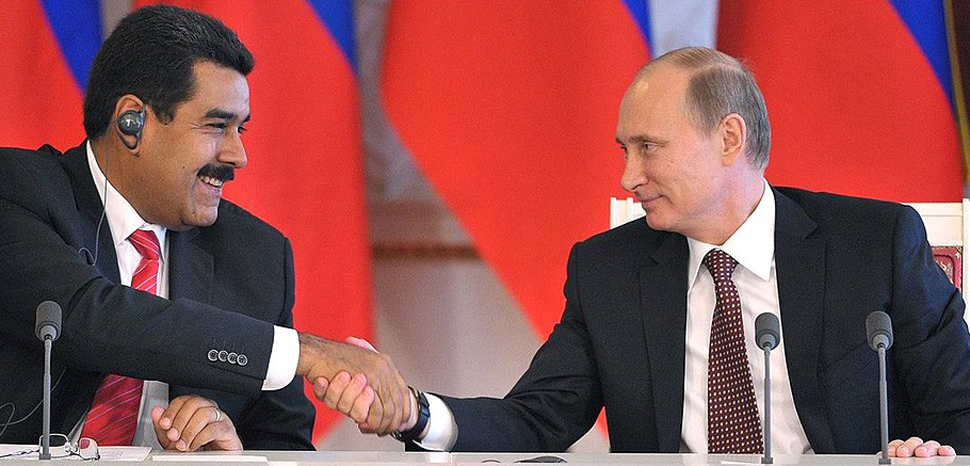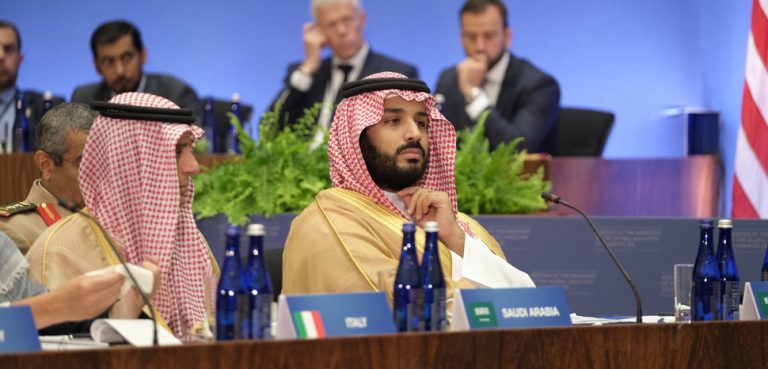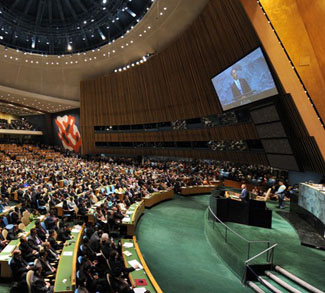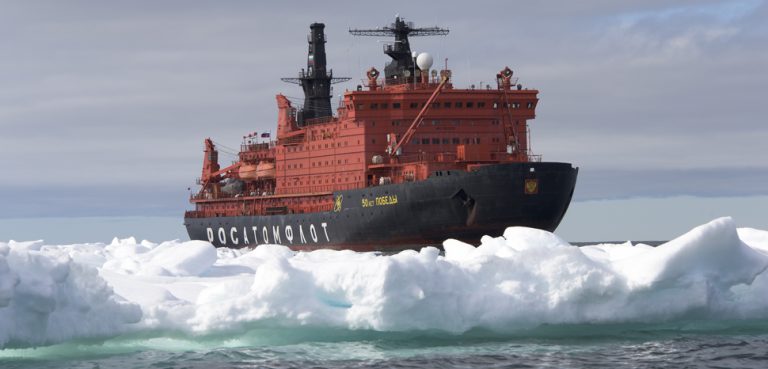Though the conflicts in Georgia and Ukraine were limited to Russia’s traditional sphere of influence, its intervention in the Syrian Civil War struck in the heart of the Middle East. A deteriorating sociopolitical crisis in Venezuela now threatens to open another front in the United States’ own backyard. For both economic and military reasons, US and Russian interests increasingly intersect in the country.
Oil has shaped Venezuela’s politics and dominated its economy ever since vast reserves were discovered in the early 20th century. The country became a reliable US supplier, but as oil prices collapsed and remained volatile throughout the 1980s and 1990s, economic turmoil hit an oil-rich country previously known for agricultural exports.
After coming to power in 1999, Hugo Chavez began nationalizing Venezuela’s oil assets, including retaking majority stakes in foreign oil projects. This caused an outflow of foreign investment and expertise, as well as resistance from the government-run oil agency, PVSDA, which lost numerous contracts and agreements.
Chavez emerged victorious from an attempted-coup in 2002, which the US supported, but continued resistance from PVSDA and political and civilian opposition hampered his administration. Oil exports to the US, its largest market, meanwhile declined as Washington sought more stable suppliers.
Nonetheless, high global oil prices for most of Chavez’ tenure financed his ambitious socialist economic reforms. Despite collapsing from their peak in 2008, oil prices recovered to profitable levels by 2010. Chavez died in 2013, replaced by his handpicked successor, Nicholas Maduro, later that year.
A little over a year after Maduro assumed office, oil prices dropped again and Venezuela’s economic situation has steadily deteriorated ever since. Most of the country’s reserves are far underground or underwater, making extraction difficult. Its infrastructure is crumbling or yet to be built, while its oil reserves are mostly a ‘heavy’ type of crude oil, making it difficult to refine, transport, and make useable.
Because it’s more expensive for Venezuela to produce its oil than other oil-rich countries, PVSDA has been reliant on foreign cooperation to make use of the country’s reserves. Ongoing administrations have alienated foreign companies capable of making Venezuela’s oil industry profitable. With the main driver of the economy no longer functioning, Venezuelan’s have suffered from hyperinflation, food shortages, and a decaying social safety net.
As Venezuela’s relationship with the U.S. deteriorated and its domestic crisis worsened, the Kremlin increased its support to Chavez and a growingly-desperate Maduro. Russia is consistently one of the largest oil producers in the world yet has significantly less reserves than Venezuela, which has the largest reserves in the world. But like Western corporations, Russian state-owned companies have the expertise and technology to extract, transport, and refine large amounts of oil for commercial use.
Because much of Russia’s natural resource companies are state-owned, The Kremlin can aid and direct them to to wider foreign policy objectives. Rosneft, Russia’s third-largest company by revenue, is majority state-owned and is estimated to have given over $17 billion to Venezuela in loans and credit lines since 2006.
In 2011, the Kremlin loaned Venezuela $4 billion for defense spending (for Russian weapons) in return for access to its oil and gas fields. Instrumental in the deal was then Deputy Prime Minister Igor Sechin, who is now CEO of Rosneft. Mr Sechin’s career demonstrates the powerful role that natural resources have come to play in the Kremlin.
In December 2018, Maduro travelled to Moscow and signed another $6 billion deal in which Russia would provide food and cash for more control over Venezuela’s industry. Russia now owns significant parts of at least five major Venezuelan oil fields, dominated by Rosneft’s heavy hand.
Due to Russia’s support for President Bashar al-Assad in the Syrian civil war, the Kremlin has been given significant more control over Syria’s oil and gas industry. In 2017, Syria signed a deal giving Russia sole rights to its oil and gas production. In return for saving desperate regimes, Russia has gained significant control over global resource markets on top of its own large reserves.
But Assad has also given Russia a permanent air base and an expansion of Russian naval facilities in the country. The Kremlin is banking on mirroring such agreements in Venezuela. Joint Russian-Venezuelan naval exercises were held in 2008, while two nuclear-capable bombers flew to Venezuela’s La Orchila island in December 2018.
Though Venezuelan law prohibits permanent foreign military bases, Russia and Venezuela announced the creation of a ‘temporary’ long-term Russian airbase on La Orchila soon after the flight demonstration. Together with Venezuela’s Russian weapons imports, the two militaries will find it easier to coordinate Russian power projection in the Caribbean.
Expanding a military presence in Venezuela will bring up uncomfortable memories from the Cuban Missile Crisis. In 2017, Igor Sechin held talks with Cuban President Raul Castro and agreed to expand oil and gas ties. The potential for a Russian base in Venezuela came after steady integration through natural resource industries, a formula that Cuba appears intent on replicating.
Stakes have risen in Venezuela since Russia allegedly sent hundreds of personnel from its most notorious private military company, Wagner, in January. Deploying Wagner will allow Russia to mask its presence in Venezuela, similar to recent conflicts.
Many of Wagner’s personnel are ex-Russian soldiers. They have worked with rebel elements in Ukraine and been granted partial control of re-captured oil and gas fields in Syria. Wagner has also been deployed across Africa to safeguard regimes under scrutiny from the West and international institutions, as well as protect their lucrative mining operations.
Wagner represents a privatization of security backed by the power of the Russian military. Rosneft and Gazprom, Russia’s other resource crown jewels, operate their own security forces, and together could be the force that takes over from the Russian military in Syria and potentially in Venezuela.
Russia’s ability to safeguard desperate regimes has made other ‘rogue states’ increasingly look to Russia as a guarantor of their security. Keeping Maduro in power represents part of a wider policy of assisting other states hostile to wider US foreign policy.
The Kremlin often offers diplomatic support to North Korea and relieved most of its debt obligations to Russia in 2014. In the years that followed, Korean rocket tests increased dramatically, drawing the attention of the U.S. More recently, not only has Russia aided the Syrian government in the civil war, it has done so in tandem with Iranian forces after decades of Iranian military isolation.
Backed by the U.S., Venezuelan opposition leader Juan Gaido declared himself acting president on January 23, ushering in the latest escalation of Venezuela’s political crisis. He was soon recognized as interim president by the U.S., Canada, the EU, and most Latin American countries. China, Russia, Turkey, Iran and others continue to recognize Maduro, who still has the broad support of the Venezuelan military.
The U.S. has imposed sanctions on Maduro and individuals associated with him, as well as PVSDA, which is now stacked with Maduro allies. But the ability of Maduro and the Venezuelan economy to withstand the pressure suggests that, though the sanctions may damage his administration, they may not be enough to force him out.
Chavez fought to gain control over Venezuela’s oil supply and push out the U.S. and the West, only to have Maduro establish a new reliance on Russia. With the Kremlin’s help, his administration may survive, in return for Russian control over Venezuela’s oil industry and the establishment of a military footprint in the United States’ backyard.
The opinions, beliefs, and viewpoints expressed by the authors are theirs alone and don’t reflect the official position of Geopoliticalmonitor.com or any other institution that the author is attached to.




